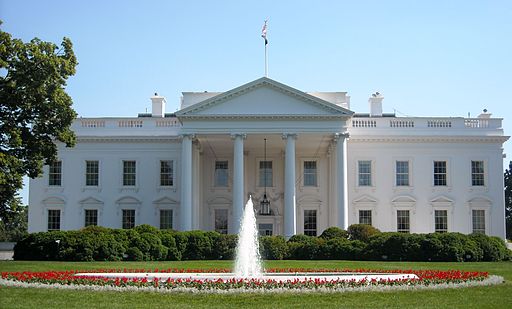Tag: federal agency
-
Wall Street trade group sues Missouri over rules opposing ESG in private investments

The Securities Industry and Financial Markets Association (SIFMA) is suing the state of Missouri over its recently enacted rules requiring the disclosure of ESG considerations to private investors. SIFMA claims the state overstepped its authority. Ballotpedia tracks support for and opposition to the environmental, social, and corporate governance (ESG) investing movement. To learn more about…
-
OIRA reviewed 47 significant rules in July

In July 2022, the White House Office of Information and Regulatory Affairs (OIRA) reviewed 47 significant regulatory actions issued by federal agencies. OIRA approved six of these rules with no changes and approved the intent of 40 rules while recommending changes to their content. One rule was withdrawn from the review process by the issuing…
-
Texas sues Biden administration over guidance requiring abortions in medical emergencies

Texas Attorney General Ken Paxton (R) sued the Biden administration July 14 after Department of Health and Human Services (HHS) Secretary Xavier Becerra released guidance July 11 requiring doctors to provide abortions in medical emergencies when “abortion is the stabilizing treatment necessary to resolve [the emergency] condition.” The guidance went on to say that “when…
-
Republican-led states sue Department of Agriculture over nondiscrimination school meal guidance

Tennessee Attorney General Herbert Slatery (R), joined by 21 Republican attorneys general, filed a lawsuit on July 26, 2022, in the United States District Court for the Eastern District of Tennessee that aimed to overturn guidance from the Biden administration and the Department of Agriculture’s (USDA) Food and Nutrition Service. The guidance expanded Title IX…
-
OIRA reviewed 38 significant rules in September

In September 2021, the White House Office of Information and Regulatory Affairs (OIRA) reviewed 38 significant regulatory actions issued by federal agencies. OIRA approved one of these rules with no changes and approved the intent of 35 rules while recommending changes to their content. Two rules were withdrawn from the review process by the issuing…
-
Biden withdraws Chipman from consideration for ATF director

President Joe Biden (D) announced on Sept. 9, 2021, that he was withdrawing David Chipman from consideration for director of the Bureau of Alcohol, Tobacco, Firearms, and Explosives (ATF). Chipman, a former ATF agent and senior policy advisor at Giffords, had been nominated in April 2021. The Senate Judiciary Committee declined to report on Chipman’s…
-
OIRA reviewed 35 significant rules in May

The White House Office of Information and Regulatory Affairs (OIRA) reviewed a total of 35 significant regulatory actions issued by federal agencies in May 2021. The agency approved five rules without changes and approved the intent of 30 rules while recommending changes to their content. OIRA reviewed 56 significant regulatory actions in May 2020, 36…

